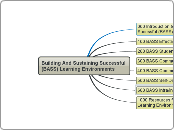av Jim Shaeffer för 15 årar sedan
349
BASS
Creating and maintaining successful learning environments involves fostering self-directed learning, where students manage their own projects and progress with minimal interference.

av Jim Shaeffer för 15 årar sedan
349

Mer av detta